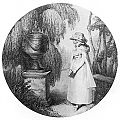Mary: A Fiction
Mary: A Fiction is a novel written by Mary Wollstonecraft, a British feminist. It is her first and only complete novel. Wollstonecraft wrote it when she was a governess in Ireland. The novel was published in 1788 shortly after she decided to embark on a writing career, an unpopular profession for women in 18th-century Britain.
It tells the story of a heroine's "romantic friendships" with a woman and a man.
Wollstonecraft was inspired by Jean-Jacques Rousseau's idea that "geniuses are self-taught", so Wollstonecraft made Mary, the main character, a self-taught heroine. Wollstonecraft describes Mary as independent and capable of defining femininity and marriage for herself. It is Mary's "strong, original opinions" and her resistance to "conventional wisdom" that makes her a genius. Mary also critiques marriage, 18th-century sensibility and its damaging effects on women.
Mary: A Fiction Media
Title page from Mary: A Fiction; epigraph by Rousseau reads: "L'exercice des plus sublimes vertus éleve et nourrit le génie" ("the exercise of the most sublime virtues raises and nourishes genius")
Rousseau's Julie, or the New Heloise (1761), from which Wollstonecraft drew the epigraph for Mary
Otto Scholderer's Young Girl Reading (1883); in Mary, Wollstonecraft criticizes women who imagine themselves as sentimental heroines.
Charlotte at Werther's tomb in Goethe's The Sorrows of Young Werther (1774)
Mary Wollstonecraft by John Opie (c. 1791)
Title page from the first edition of Charlotte Brontë's Jane Eyre (1847)





